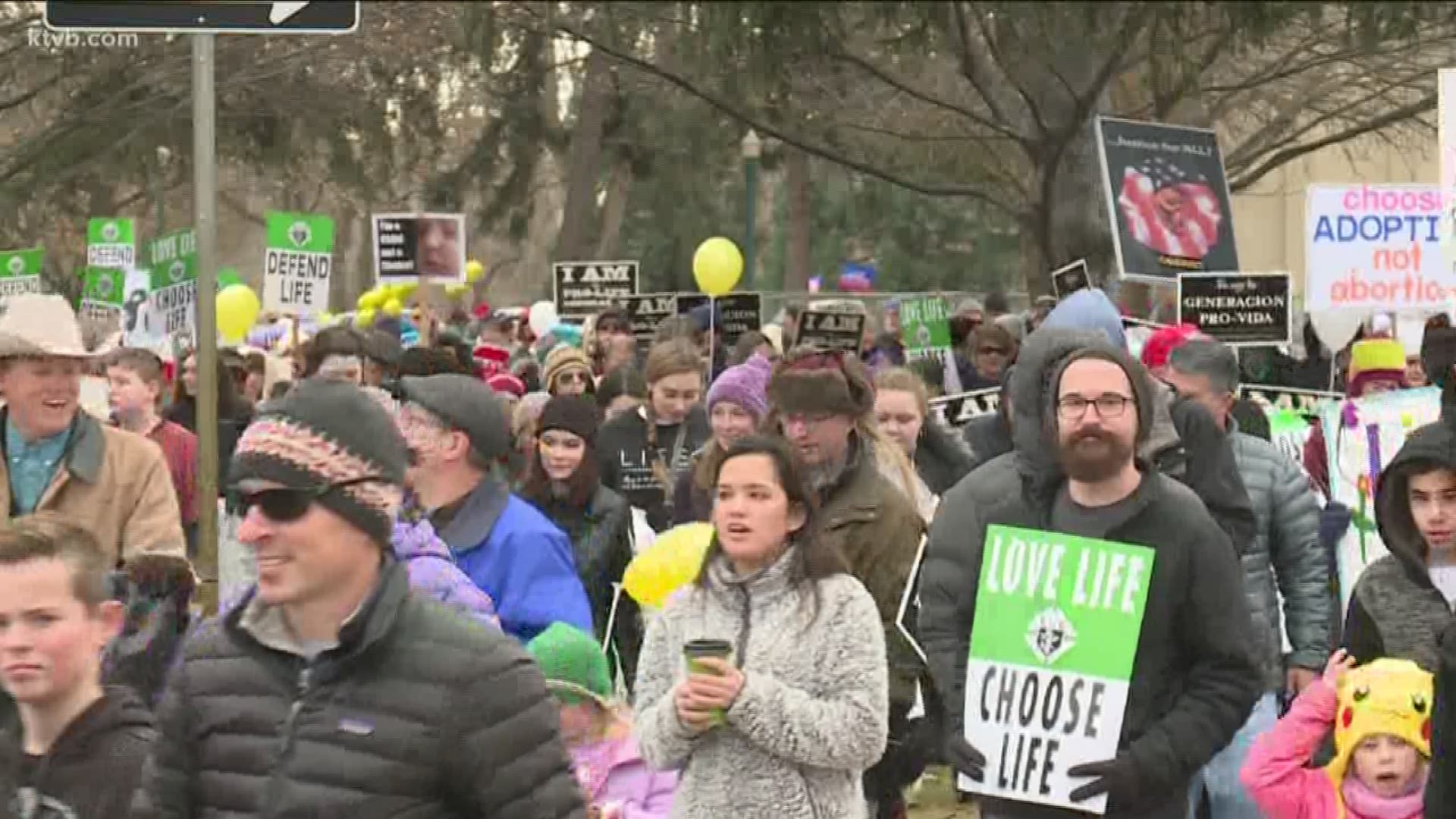BOISE, Idaho — For the past half century, the weekend closest to Jan. 22 has been a time people on both sides of the abortion-rights issue take to the streets in cities across the U.S. This year is no exception, but for participants in the March For Life and in pro-abortion rights -- a.k.a. pro-choice -- camps, the legal and political fight has changed.
In past years, March For Life events in Idaho and across the country have marked the anniversary of the U.S. Supreme Court's Roe v. Wade decision that struck down states' prohibitions against abortion. That decision came on Jan. 22, 1973. However, in 2022, a majority of the Supreme Court's justices voted to overrule Roe in Dobbs v. Jackson (Mississippi) Women's Health, paving the way for many states, including Idaho, to implement criminal penalties for terminating a pregnancy.
The U.S. Congress, state legislatures and, through the initiative process, voters reserve the right to enact laws prohibiting or allowing abortion. Now, anti-abortion advocates are taking aim at efforts to roll back restrictions.
The Boise March For Life is scheduled for 1 p.m. Saturday, starting at the Gene Harris Bandshell at Julia Davis Park and proceeding down Capitol Boulevard to the Idaho State Capitol. The featured speaker is Megan Wold. She's a former law clerk for Justice Samuel Alito, who wrote the majority opinion in Dobbs.
Where past March For Life events were platforms to denounce the Roe decision and laws that have allowed abortion, organizers this year "celebrate the overturning of Roe and renew our pledge to defend the sanctity of human life." However, as they celebrate, anti-abortion advocates are calling for continued action.
In a statement emailed Friday morning, the Idaho Republican Party said, "Now the hard work begins: Planned Parenthood and its leftist allies are targeting red-state abortion prohibitions -- like in Kansas and Montana -- and creating new legal regimes that strike at the unborn."
In Idaho, the state supreme court earlier this month upheld laws that make performing an abortion a felony, providing for both criminal and civil penalties, while allowing an "affirmative defense" only in cases of rape or incest documented by a police report or in cases where the health care provider has reason to believe the pregnant person's life is in danger. The Idaho Supreme Court was split, with Justices John Stegner and Colleen Zahn dissenting.
At 1:15 p.m., a protest organized by the Idaho Abortion Rights Collective is scheduled to begin at Cherie Buckner-Webb Park, just blocks away from the statehouse.
"The bans have harmed our communities, particularly marginalized communities and people living in rural areas," said Kimra Luna, founder of the Idaho Abortion Rights Collective. "We will continue to work hard to ensure all Idahoans get the access they deserve."
Watch more Idaho politics:
See all of our latest political coverage in our YouTube playlist:

